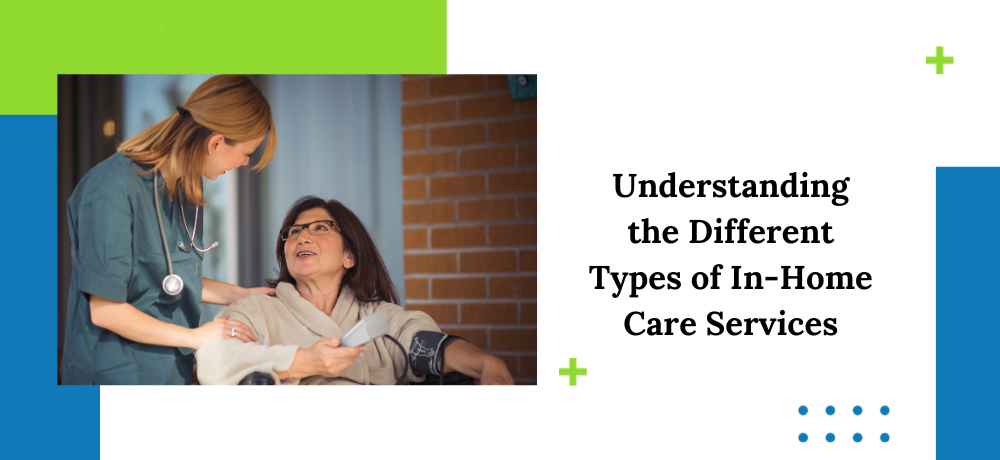Understanding the Different Types of In-Home Care Services

In today's fast-paced world, the demand for in-home care services is on the rise, especially with an aging population. Families are seeking reliable and compassionate care for their loved ones, and understanding the different types of in-home care services available is crucial. In this comprehensive guide, we will delve into the world of home care, senior care, and in-home care services, shedding light on the options and benefits they offer.
The Importance of Home Care Services
What Is Home Care?
Home care is a specialized form of healthcare that allows individuals to receive medical and non-medical services in the comfort of their own homes. It's an ideal solution for seniors and individuals with disabilities who wish to maintain their independence while receiving the care they need.
Types of Home Care Services
- Medical Home Care
Medical home care services are provided by trained healthcare professionals such as nurses and therapists. These services include medication management, wound care, physical therapy, and monitoring of chronic conditions. Medical home care is essential for individuals with complex healthcare needs.
- Non-Medical Home Care
Non-medical home care focuses on assisting with daily activities and personal care. This type of care includes services like bathing, grooming, meal preparation, and companionship. It is particularly beneficial for seniors who need assistance with daily tasks but do not require medical attention.
- Companion Care
Companion care services offer emotional support and companionship to individuals who may feel isolated or lonely. Companions engage in activities with the client, provide social interaction, and offer a sense of security.
- Respite Care
Respite care is designed to provide temporary relief to family caregivers. It allows caregivers to take a break while a trained professional cares for their loved one. This service is invaluable for preventing caregiver burnout.
Senior Care Services
Understanding Senior Care
As we age, our needs change and senior care services become increasingly important. Let's explore the different aspects of senior care.
Types of Senior Care Services
- In-Home Senior Care
In-home senior care, also known as aging in place, allows seniors to remain in their familiar environment while receiving the care they need. This service includes personal care, medication reminders, and assistance with mobility.
- Assisted Living Facilities
Assisted living facilities provide a community setting for seniors who need assistance with daily activities. Residents have access to 24/7 care, recreational activities, and social interactions.
- Nursing Homes
Nursing homes are suitable for seniors with complex medical needs. They offer around-the-clock medical care, rehabilitation services, and assistance with daily living activities.
In-Home Care Services for Seniors
Benefits of In-Home Care Services for Seniors
In-home care services for seniors offer numerous advantages that promote overall well-being and quality of life.
- Personalized Care
In-home care services are tailored to the specific needs of each individual. Caregivers create customized care plans that address medical conditions, mobility limitations, and personal preferences.
- Comfort and Familiarity
Remaining in the comfort of one's home is emotionally comforting for seniors. It allows them to stay in a familiar environment, surrounded by cherished memories and possessions.
- Independence and Dignity
In-home care services encourage independence by providing support for daily activities without taking away the individual's sense of autonomy. Seniors maintain their dignity and decision-making abilities.
- Cost-Effective
Compared to institutional care, in-home care services are often more cost-effective. Seniors can receive the care they need without the high costs associated with nursing homes or assisted living facilities.
The Evolution of In-Home Care
A Historical Perspective
In-home care has come a long way in meeting the evolving needs of individuals. Historically, families relied on informal care networks, such as relatives or neighbors, to provide assistance to seniors. As society changed, formal in-home care services emerged to address the increasing demand for professional caregiving.
- Technological Advancements
Modern in-home care services have benefited greatly from technological advancements. The introduction of telehealth services and smart home devices has enhanced the quality of care and safety for clients. Seniors can now receive medical consultations and monitoring from the comfort of their homes, ensuring timely intervention in case of emergencies.
The Future of In-Home Care Services
Innovations in Care Delivery
The future of in-home care services looks promising, with ongoing innovations in care delivery. Robotic assistance and artificial intelligence are being explored to provide additional support to both clients and caregivers. These technologies aim to improve efficiency while maintaining the human touch that is essential in caregiving.
The Role of Holistic Care
Holistic approaches to in-home care are gaining popularity, recognizing that well-being encompasses not only physical health but also emotional, social, and spiritual aspects. Care plans are increasingly incorporating activities like art therapy, music therapy, and mindfulness practices to enhance the overall quality of life for clients.
As the landscape of in-home care services continues to evolve, it's essential for families to stay informed about the options available and make informed decisions to ensure the well-being of their loved ones. At Focus Family Care, we remain dedicated to adapting to these changes and providing the highest level of care to our clients.
To learn more about what we offer, please click here. If you have questions, we'd be happy to hear from you. Feel free to call us at (561) 693-1311 or email info@focusfamilycare.com.